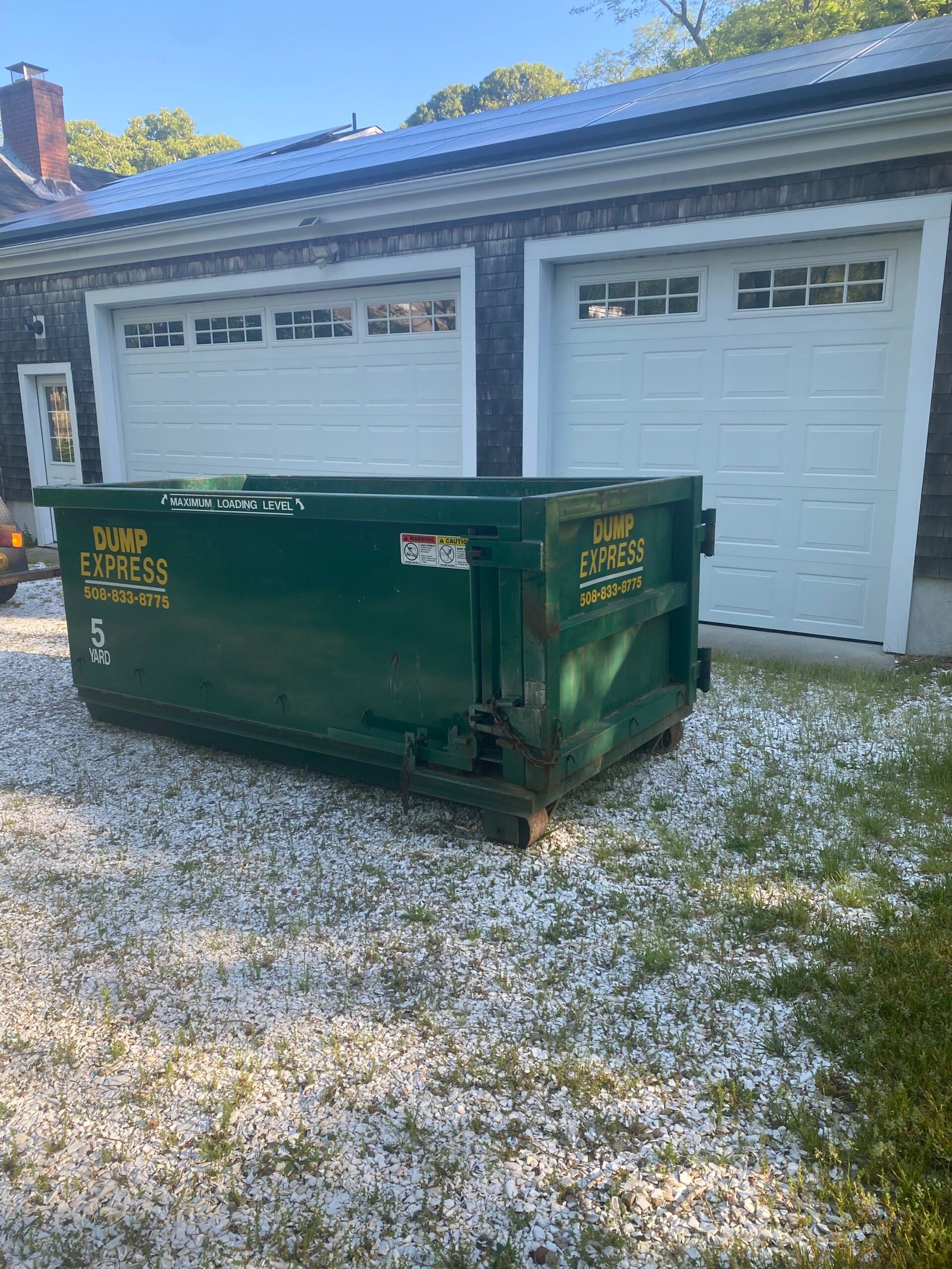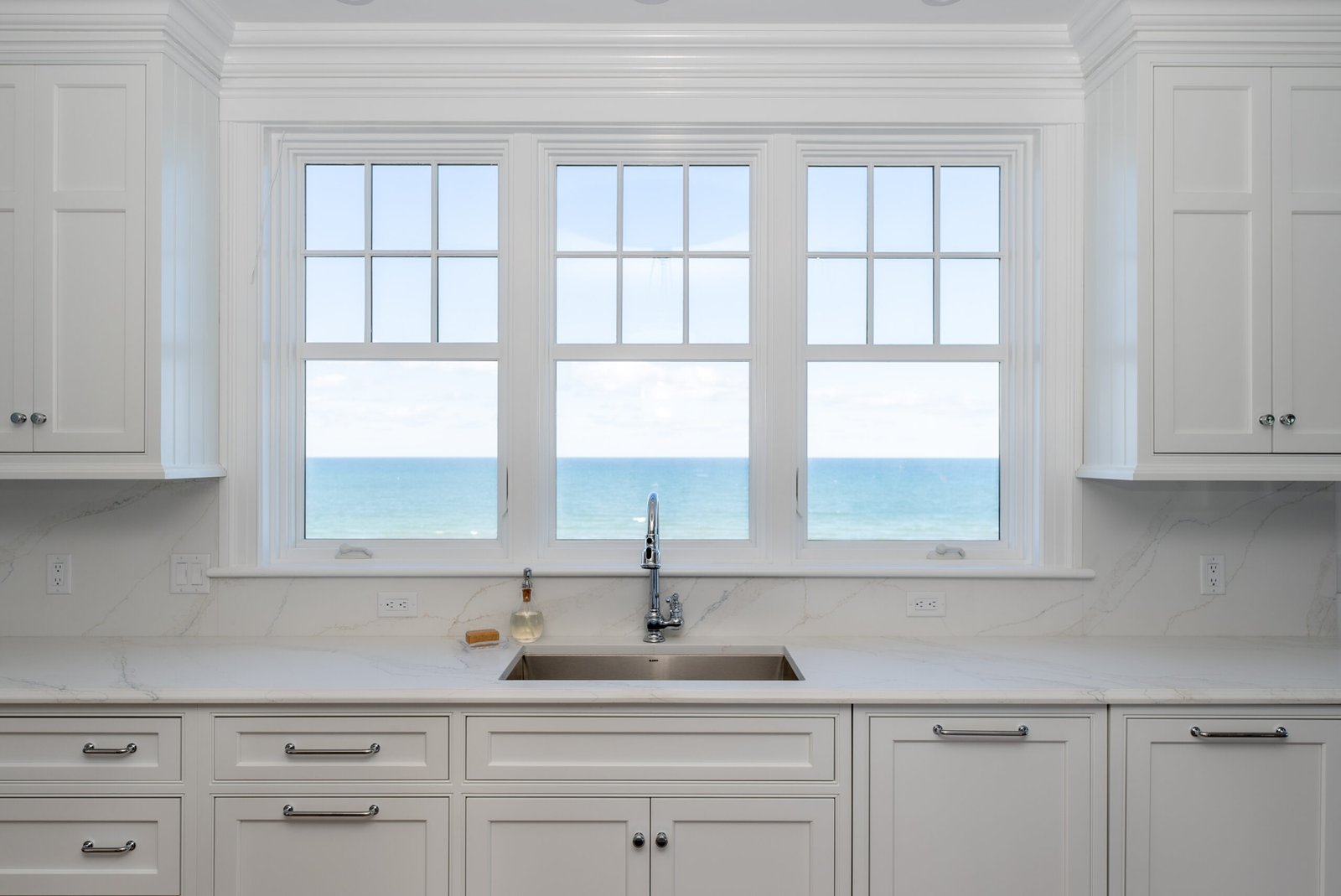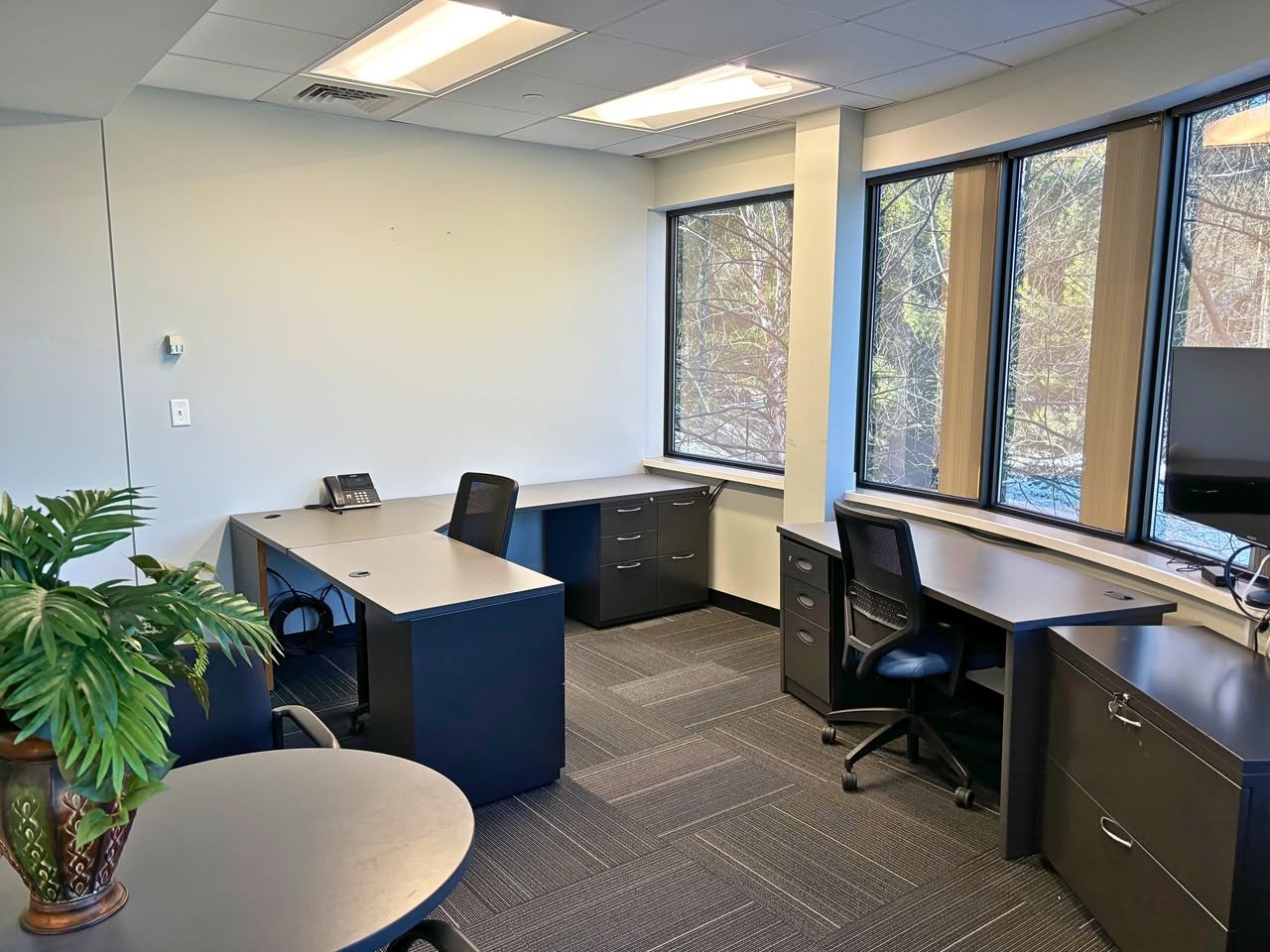Renting a dumpster on Cape Cod can be a lifesaver when you’re tackling a big project, whether it’s a home renovation, a spring cleanout, or a construction job. But if you never rented a dumpster before you may not know what needs to be done to have uneventful rental. A little planning can save you time, money, and stress. Our checklist will help guide you through everything you need to know for a stress-free dumpster rental experience.
1. Determine the Type of Waste
Why It’s Important:
Before renting a dumpster, you need to know what kind of waste you’ll be disposing of. Different projects generate different types of waste, and not all of it can go into a standard dumpster.
What to Do:
- Household Waste: If you’re doing a cleanout, you’ll likely be disposing of items like furniture, appliances, and general household debris.
- Construction Debris: For renovations, you’ll have materials like drywall, wood, metal, and tiles.
- Yard Waste: If you’re working on landscaping, expect grass, branches, leaves, and soil.
- Hazardous Materials: Items like paint, chemicals, and batteries require special disposal and cannot go in regular dumpsters.
Tip for Cape Cod Residents:
Cape Cod has strict regulations regarding waste disposal. Make sure to check with your local waste management authority to understand what can and cannot be placed in a dumpster in your area.
2. Estimate the Amount of Waste
Why It’s Important:
Renting the right size dumpster is crucial. Too small, and you’ll need multiple trips or rentals. Too large, and you’re paying for unused space.
What to Do:
- Small Projects (10-15 yards): Ideal for small cleanouts or minor home renovations.
- Medium Projects (15-20 yards): Great for larger cleanouts, medium-sized renovations, or yard projects.
- Large Projects (20-40 yards): Necessary for major renovations, construction projects, or large-scale cleanouts.
Tip for Cape Cod Residents:
If you’re unsure about the size, consult with a local dumpster rental service on Cape Cod. They’ll be familiar with the types of projects common in the area and can recommend the best size for your needs.
3. Obtain the Necessary Permits
Why It’s Important:
Depending on where you plan to place the dumpster, you might need a permit. Failing to obtain the required permits can lead to fines or the removal of your dumpster.
What to Do:
- Private Property: No permit is typically required if the dumpster is placed on your driveway or private land.
- Public Property: If the dumpster will be on the street or public property, you’ll need a permit from your local municipality.
Tip for Cape Cod Residents:
Cape Cod’s towns each have their own regulations regarding dumpster placement on public property. Be sure to contact your town’s public works department to inquire about permits and avoid any legal issues.
4. Plan the Placement of Your Dumpster
Why It’s Important:
The location of your dumpster affects ease of use, accessibility, and compliance with local regulations.
What to Do:
- Accessibility: Place the dumpster where it’s easy to access but doesn’t obstruct driveways, sidewalks, or roadways.
- Surface Protection: Consider placing plywood under the dumpster to protect your driveway or lawn from damage.
- Neighborhood Impact: Be considerate of your neighbors. Avoid placing the dumpster in a way that blocks their view or access.
Tip for Cape Cod Residents:
Some of the Cape Cod’s towns have narrow streets and tight-knit communities make it essential to carefully plan where you’ll place your dumpster. Make sure it’s not obstructing traffic or pedestrian pathways.
5. Understand Rental Duration and Costs
Why It’s Important:
Knowing how long you’ll need the dumpster and understanding the costs involved will help you budget and avoid extra fees.
What to Do:
- Short-Term Rentals: Most residential projects can be completed within a week, so a 7-day rental is often sufficient.
- Long-Term Rentals: For ongoing projects, inquire about extended rental periods.
- Cost Factors: Dumpster rental costs can vary based on the size of the dumpster, the rental duration, and your location.
Tip for Cape Cod Residents:
Due to Cape Cod’s seasonal nature, some rental companies may offer different rates depending on the time of year. Be sure to ask about any seasonal pricing and availability.
6. Prepare for Delivery and Pickup
Why It’s Important:
Proper preparation ensures that your dumpster rental goes smoothly from start to finish.
What to Do:
- Clear the Area: Before delivery, clear the area where the dumpster will be placed. Ensure there’s enough space for the delivery truck to maneuver.
- Be Present: If possible, be there when the dumpster is delivered to confirm the placement.
- Load Evenly: When filling the dumpster, distribute the weight evenly to avoid overloading one side.
- Don’t Overfill: Never fill the dumpster above the top edge. Overfilled dumpsters can’t be transported safely, leading to additional fees or delays.
Tip for Cape Cod Residents:
Weather on Cape Cod can be unpredictable. Be prepared for possible delays in delivery or pickup during the winter months or hurricane season.
7. Know What to Do with Prohibited Items
Why It’s Important:
Disposing of prohibited items in a dumpster can lead to fines, environmental hazards, and additional removal costs.
What to Do:
- Check Local Regulations: Always confirm what items are prohibited by your local waste management authority.
- Separate Hazardous Materials: For items like paint, chemicals, or electronics, contact a local hazardous waste disposal facility.
- Donate Usable Items: Instead of throwing away usable items like furniture or appliances, consider donating them to local charities.
Tip for Cape Cod Residents:
Cape Cod has several recycling and hazardous waste disposal facilities. Utilize these services to properly dispose of items that can’t go in a standard dumpster.
8. Communicate with Your Rental Company
Why It’s Important:
Clear communication with your dumpster rental company ensures that you’re both on the same page and can prevent misunderstandings.
What to Do:
- Confirm Details: Before finalizing your rental, confirm the size, cost, rental period, and delivery/pickup times.
- Ask Questions: Don’t hesitate to ask your rental company any questions you have about the process.
- Provide Feedback: After your rental period is over, give feedback to help improve their services.
Tip for Cape Cod Residents:
Choosing a local dumpster rental company on Cape Cod has its advantages. Local companies are more familiar with the area’s regulations, seasonal factors, and common customer needs, making them a reliable choice for your project.
9. Plan for Post-Rental Cleanup
Why It’s Important:
Even after the dumpster is gone, there may still be some cleanup to do.
What to Do:
- Check for Debris: After the dumpster is removed, check the area for any leftover debris that may have fallen out during loading or pickup.
- Surface Inspection: Inspect the surface where the dumpster was placed for any signs of damage.
- Final Waste Disposal: If there are any prohibited items that couldn’t be placed in the dumpster, make sure they are properly disposed of.
Tip for Cape Cod Residents:
Cape Cod’s sandy soil and coastal environment mean that debris can easily spread. Be thorough in your post-rental cleanup to avoid any lingering messes.
Renting a dumpster on Cape Cod doesn’t have to be a stressful experience. By following this ultimate checklist, you can ensure that your dumpster rental goes smoothly, from choosing the right size to dealing with permits and placement. With proper planning and communication, you’ll have one less thing to worry about during your project, allowing you to focus on the task at hand.
Remember, a successful dumpster rental starts with understanding your needs and working with a reliable local provider. So whether you’re cleaning out your home or managing a construction site, these tips will help you navigate the process with ease.





Leave a Reply